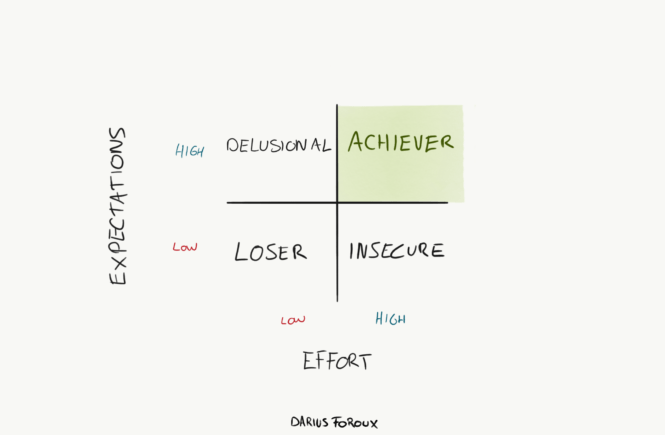Friedrich Nietzsche was a 19th-century German philosopher whose work had a profound impact on modern philosophy, especially existentialism and postmodernism.
Nietzsche is most famous for his criticisms of morality and Christianity. I’ve never been a fan of his work primarily because I find him a bit too pessimistic and nihilistic.
But recently, I’ve been reading the works of more philosophers, particularly the ones I wasn’t attracted to. And I want to expand my scope and see what I can learn from people I mostly disagree with.
Nietzsche is a prime example. After reading some of his most prominent works, including Thus Spoke Zarathustra and The Birth of Tragedy, I picked up two important lessons that I will share with you in this article.
I believe these two ideas are now more important than ever. Life is getting harder and more complex. People are more divided. But the following two ideas can help you cope with that.
1. Amor Fati: Accept what happens
The concept of “amor fati,” was first introduced by Friedrich Nietzsche. Translated as “love of fate” or “love of one’s fate,” it encourages us to embrace everything that happens in our lives, both good and bad, and see it as an essential part of our personal journey.
Nietzsche said that amor fati is the “formula for greatness in a human being.”
He believed that life is full of challenges, setbacks, and triumphs, all of which shape who we are. By adopting amor fati, we learn to accept and even love these experiences, regardless of their nature.
Instead of resisting or lamenting our circumstances, we can view them as opportunities for growth and self-discovery.
To incorporate amor fati into your daily life, start by acknowledging the events you cannot change and finding value in them. Practice gratitude for both your successes and struggles.
When faced with adversity, ask yourself what you can learn from the situation and how it can help you grow. This mindset shift leads to more resilience, positivity, and ultimately, a more fulfilling life. As Nietzsche wrote:
”Not merely bear what is necessary, still less conceal it…but love it.”
Embrace amor fati, and let it guide you toward a richer, more meaningful life.
2. Perspectivism: Embrace multiple viewpoints
Perspectivism is a central concept in Friedrich Nietzsche’s philosophy, which challenges the notion of objective truth and universal values.
According to Nietzsche, knowledge and understanding are always subjective, shaped by an individual’s unique experiences, desires, and cultural background.
In other words, there is no single “truth” that applies to everyone. Instead, there are multiple perspectives or interpretations of reality.
Nietzsche argued that our beliefs and values are strongly influenced by our personal experiences, biases, and the historical context in which we live.
These factors determine how we perceive and interpret the world around us. Consequently, each person has their own unique perspective on reality, making it impossible to arrive at an absolute or objective truth.
Nietzsche believed that this approach fosters intellectual growth and critical thinking. It pushes us to examine our own assumptions and consider alternative perspectives.
By engaging with diverse ideas and opinions, we can gain a more nuanced and comprehensive understanding of the world. This quote from Nietzsche explains the idea best:
“You have your way. I have my way. As for the right way, the correct way, and the only way, it does not exist.”
Perspectivism promotes tolerance and open-mindedness, as it recognizes that different people may hold valid but conflicting viewpoints.
By acknowledging the inherent subjectivity of human experience, we can avoid dogmatic thinking.
Criticism of Nietschze’s ideas
About amor fati, critics argue that it might lead to passivity and resignation, as people might simply accept their circumstances without striving for change or improvement.
You could also argue that amor fati results in a lack of empathy for others who are facing difficult situations. By focusing on loving one’s own fate, there’s a risk of becoming insensitive to the suffering and hardships of others.
I can relate to this. It’s also a criticism of Stoicism. When we take these ideas too far we become callous. We lose our sense of empathy, which is something that strengthens our relationships.
Regarding perspectivism, critics argue that claiming there are no objective truths is itself an objective truth claim. This creates a logical contradiction within perspectivism, as it appears to undermine its own central tenet.
Critics say that perspectivism could undermine scientific progress by casting doubt on the objectivity of scientific findings. This is something that’s happening a lot now.
This is why we also must be cautious with taking this idea to the extreme. I do think there are some objective truths in life. But there are not that many. Most things are subjective, especially when it comes to life, careers, business, and so forth.
Simply say, “You have your way. I have my way.” But also recognize that some things are more nuanced than that.
Amor Fati + Perspectivism = Open-minded resilience
Combining Nietzsche’s “amor fati” (love of fate) with his concept of “perspectivism” provides a powerful mental model for dealing with the challenges of today.
I call it “open-minded resilience.” To practice open-minded resilience in your daily life, try these strategies:
- Regularly reflect on your experiences, both positive and negative, and identify the lessons you can learn from them.
- Actively seek out different perspectives by engaging in conversations with people who have diverse backgrounds and viewpoints.
- Practice empathy by putting yourself in others’ shoes and considering their feelings and experiences.
- Remind yourself that your perspective is just one of many, and be open to changing your mind when presented with new information.
- See every setback in life as training. It will help to strengthen your character.
By integrating amor fati and perspectivism into your mindset, you can cultivate open-minded resilience. This empowers you to navigate life’s challenges with grace, adaptability, and a continuous thirst for growth.




